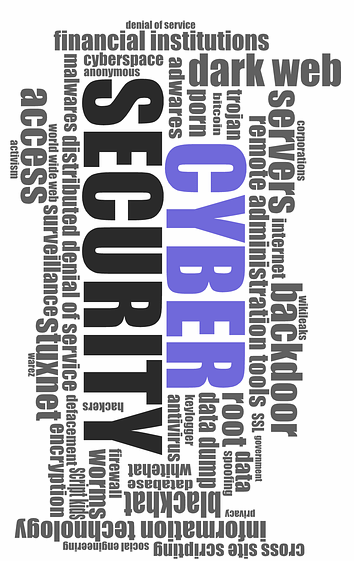Everybody knows that cybersecurity plays a pivotal role in safeguarding our online existence. It is imperative to adopt proactive measures that shield us from potential threats. With the relentless surge in cyber attacks, bolstering our cybersecurity awareness has assumed paramount importance.
Let's delve into 15 invaluable tips that will empower you to fortify your online safety, ensuring the utmost protection for your sensitive information.
Before delving into the tips, it is essential to understand the concept of cybersecurity. The main focus of cybersecurity is preventing unwanted access, theft, and damage to computer systems, networks, and data. It encompasses a range of measures and practices designed to safeguard digital information against various cyber threats, including malware, ransomware, and identity theft.
QR codes can be employed as a secure authentication method, offering an alternative to traditional usernames and passwords. Using QR codes as a two-factor authentication mechanism, users can scan a QR code displayed on their devices using a trusted authentication app.
A crucial aspect of enhancing cyber security awareness is maintaining up-to-date software. Software developers consistently release updates and patches to address security vulnerabilities. You can ensure you have the latest security features and bug updates by often updating your operating system, web browser, and programs. This proactive approach makes it more challenging for attackers to exploit weaknesses in outdated software.
The foundation of online security lies in having a solid password. Avoiding common passwords or quickly guessable information, such as your name or birthdate, is vital. Use complicated passwords instead, including capital, lowercase, digits, and special characters.
By implementing two-factor authentication (2FA), you can make your online accounts more secure. Turning on 2FA adds an additional login verification step, often a code texted to your mobile device.
Cybercriminals continue to use phishing as a common strategy to trick people into disclosing sensitive information like login passwords or financial information. To safeguard yourself, exercise caution when encountering suspicious emails and refrain from clicking on links or opening attachments from unfamiliar sources. Always verify the sender's identity and carefully scrutinize and delete the email content for any indications of phishing, such as grammatical errors or urgent solicitations for personal information.
Excessive sharing of personal information online can expose you to the risk of identity theft and various other cybercrimes. When posting information on social networking platforms and elsewhere online, be careful. By limiting the availability of personal information, you make it more difficult for attackers to exploit your identity.
Data loss can happen for numerous reasons, such as malware infections, hardware failures, or unintentional deletion. Regular data backups are essential to reducing the effect of such tragic occurrences. By doing this, you make sure that all critical files and documents are duplicated. Consider employing cloud storage services or external hard drives for secure and practical backups. If you use any software or tools, including employee scheduling tools or accounting software, make sure that they offer encryption features to safeguard sensitive data
When connecting to Wi-Fi networks, opting for secure and trusted networks is vital. It is advisable to refrain from linking to public Wi-Fi networks that do not require a password, as they are more susceptible to eavesdropping and unauthorized access. Consider employing external hard drives or cloud storage services for secure and practical backups.
Antivirus software plays a vital role in identifying and preventing malware infections. Installing trusted antivirus software on your devices and ensuring it remains up to date is imperative. Conduct regular system scans to detect any potential malware, and exercise caution when downloading files or visiting websites from untrusted sources.
Take the time to review and adjust your social media privacy settings, ensuring that you share information solely with your intended audience. Restrict the visibility of individual posts and exercise caution when accepting friend requests or connecting with unfamiliar individuals. Refrain from posting sensitive information that could potentially be exploited or used to target you.
Remaining well-informed about the latest cyber threats and attack techniques is essential for bolstering your cyber security awareness. Stay updated by following reputable cybersecurity blogs and trusted news sources that provide insights into emerging threats. Educate yourself about common scams and acquire the knowledge needed to identify and respond to them effectively.
Downloading software or files from untrusted sources can expose your system to malware and various security risks. It is crucial to download applications and files exclusively from official websites or sources that are deemed trustworthy.
Public Wi-Fi networks can serve as hotspots for cyber attacks. It is advised to avoid sensitive activities, including online banking or accessing private data, while using a public Wi-Fi connection. Employ a trustworthy VPN to encrypt your internet traffic and safeguard your data from potential eavesdropping.
Organizations must prioritize cybersecurity training programs designed for their employees to safeguard their operations. Countless cyber attacks aim to exploit the vulnerabilities of individuals within an organization, taking advantage of their limited awareness and knowledge concerning potential threats.
Enhancing cyber security awareness is of utmost importance in safeguarding your digital life against many threats. You can significantly bolster your online security by implementing the 15 tips outlined in this article. It is vital to remain vigilant, ensuring that your software remains up to date, utilizing solid passwords, and proactively educating yourself about emerging cyber threats.
By taking these proactive measures, you can confidently navigate the digital landscape and fortify the protection of your sensitive information.